- Home
- slideshows
- miscellaneous
- 7 tricks to cut your grocery spending in the new year, according to a chef
7 tricks to cut your grocery spending in the new year, according to a chef
1. Follow the 5-minute rule

2. Forget the fancy condiments — you can make them

"You see a lot of fancy salts, condiments, and oils these days," Gamoran says. "A lot of people buy that. It's a total waste of money."
Things like infused oils are simple to make. "I heat up my vegetable oil, which is soybean oil. Then, I put in whatever I have left in the kitchen. It's infusing it like tea, and you can have your own flavored oils at home for a one-twelfth of the cost," he says.
The same goes for salad dressing, he says. "Salad dressing should have three ingredients: a really good neutral oil, some sort of acid, and a sweetener. That's it," he says. "It will stay good in your fridge for a long time, and salad dressings at the store average six to seven bucks. Again, you're talking about a five-minute deal."
3. Skip the packaged meat section and go to the butcher counter
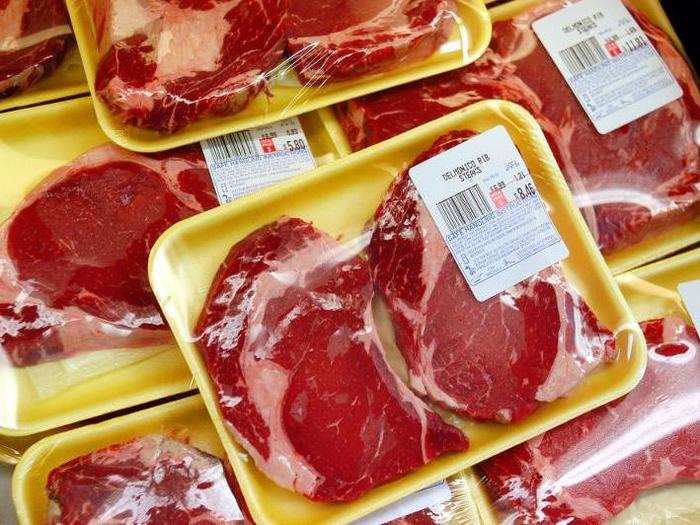
Pre-packaged meat is often overpriced, says Gamoran, and you can save by simply going to the meat counter and finding whole pieces.
"Try and find a cut of any meat that is kind of whole as opposed to its own cut. It doesn't matter if you don't know how to break it down," says Gamoran, adding that it can be done for you behind the counter.
"When you go to the grocery store, you see that whole fish no one ever buys because they're scared to cut it. The best thing you can do is hand that over to the butcher, have them cut it and then give you the bones, give you everything, and you just doubled your money," he says. "I think it's a waste to go for single packaged animal protein."
4. Bypass prepackaged meats and cheeses and head to the deli
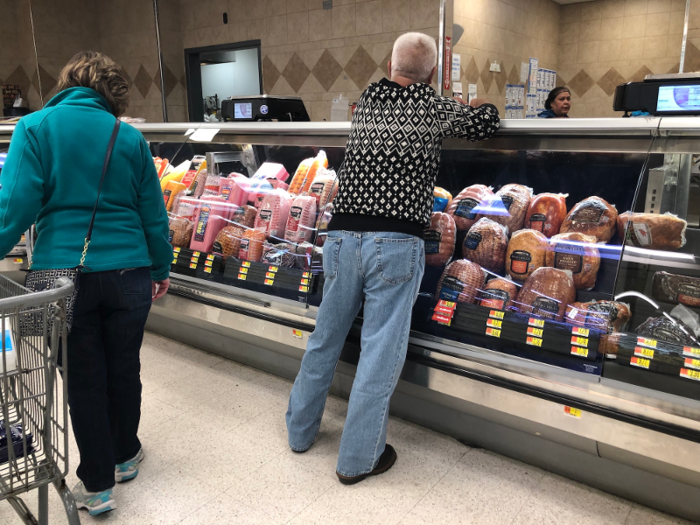
Buying things in packages often restricts you to buying more than you need, and that can be a big money waste. With deli and meat counters at grocery stores, this is often an option you have.
"You don't need to go get a big, giant thing of bacon. You can get a slice or two just for the recipe at the meat counter, and then you don't have 10 slices left over," Gamoran says. "If you can find those little pockets in the grocery store that allow you to portion out smaller sizes for a single recipe, I think that's a really good way to go."
The same thing goes for cheeses and anything you can get on the olive bar. "A recipe might call for capers, and you have to go buy a big jar of capers only to have 80% left over. At the pickle bar, you can just go grab a tablespoon of capers," he says. Using these various counters and fresh bars can help you save several dollars compared to their pre-packaged counterparts.
5. Be friends with your freezer
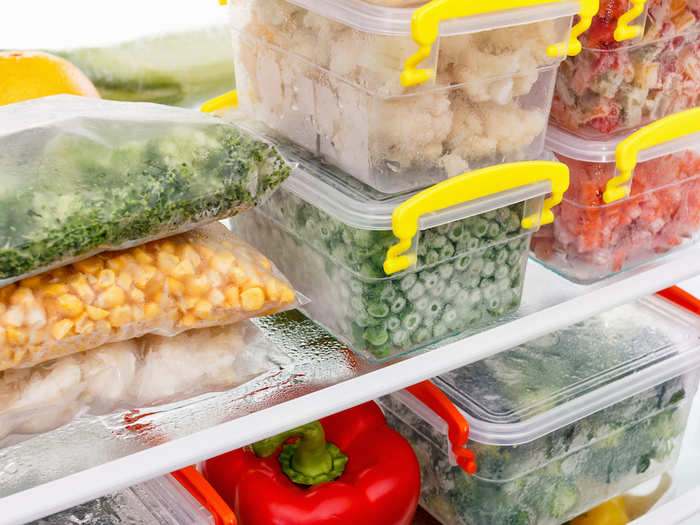
Gamoran says that one of the best tools for saving money on groceries is already in your kitchen: your freezer.
"Make best friends with your freezer. A lot of people think frozen food is inferior food, but the freezer is so crucial to meal planning," says Gamoran. Using your freezer to have easy-to-make meals on hand for when you just don't feel like cooking can cut your restaurant spending, too.
The freezer can also help you save things for later. "I think it's okay to follow a recipe and have extra ingredients left over, but what's not okay is to let those extra ingredients go bad," he says.
Many things can be used later, and the freezer can help. "Extra little pieces of meat that you didn't use are great for the freezer; so are extra mushrooms. Utilizing the freezer will extend the life of food up to four times," he adds.
6. Start meal planning the easy way
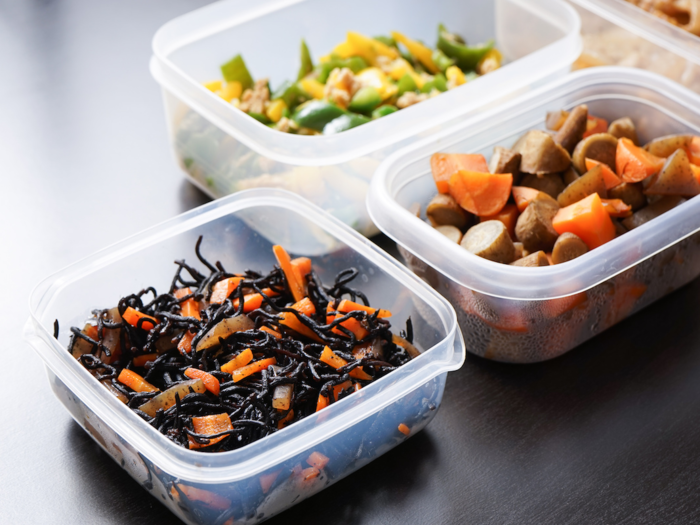
Meal planning can be a great way to save time and money. If done right, a few ingredients can transform into a week's worth of meals.
"For meal planning, you start with the base. Start beefing up your whole grains and carbs, and think outside the box. Incorporate new things that are cheap and cost-efficient, like couscous or quinoa. There are so many options now," Gamoran says.
"On a Sunday or Monday night, you can make a big pot and then it can transform into a lot of different things. You can have a quinoa salad on Monday for lunch, and you can have a quinoa fry on Tuesday," he says. Once your base is picked out, you can swap in different things all week long to keep it interesting and fresh.
7. Use your store's bulk section
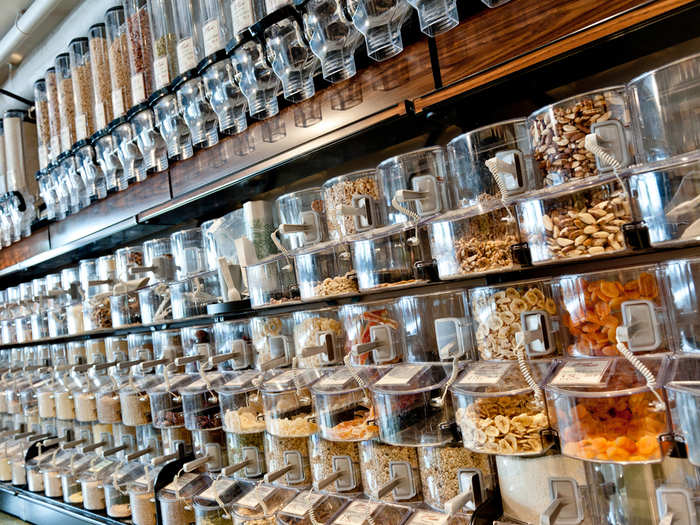
Everything is cheaper in the bulk section, where items are sold without packaging.
"Shop in bulk, no question about it," Gamoran says. "You should never buy things like almonds pre-packaged."
It's not uncommon to find things selling for less than half of what the packaged version costs in the bulk section. Most stores have bulk sections, and by simply buying here, you can save. "Bulk is huge," Gamoran says.
- More personal finance coverage
- 4 reasons to open a high-yield savings account while interest rates are down
- It took less than 10 minutes to open a high-yield cash account with Wealthfront and earn more on my savings
- How to buy a house with no money down
- When to save money in high-yield savings
- Best rewards credit cards
- 7 reasons you may need life insurance, even if you think you don't
Popular Right Now
Popular Keywords
Advertisement